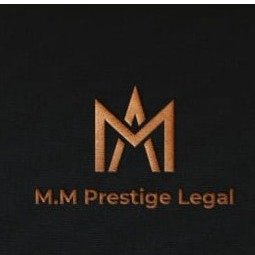Best Arrests & Searches Lawyers in Pretoria
Share your needs with us, get contacted by law firms.
Free. Takes 2 min.
List of the best lawyers in Pretoria, South Africa
About Arrests & Searches Law in Pretoria, South Africa
The law concerning arrests and searches in Pretoria, and South Africa as a whole, is primarily governed by the Criminal Procedure Act of 1977. This document, combined with the South African Constitution, safeguards the rights of individuals subjected to arrest and search procedures, including the right to be free from unreasonable and invasive searches and the right to be informed of arrest reasons. Understanding these laws can be complex, thus seeking legal advice may be crucial.
Why You May Need a Lawyer
Individuals may need legal assistance if they've been subjected to an unlawful arrest or search, if they have been detained without cause, or are seeking to understand their rights during the arrest and search procedures. Lawyers can also be instrumental in cases where personal or property rights may have been violated during searches, during arrests without a warrant, or if fair procedures weren't followed during the arrest and imprisonment.
Local Laws Overview
The local laws in Pretoria mirror South African national law in terms of arrests and searches. The most significant principle is that law enforcement officers must have a justifiable reason to arrest or search someone or their property. This often means they must have a warrant, but exceptions exist where immediate action is required. Additionally, individuals have the right to fair treatment and can demand that law enforcement identify themselves and clarify any charges brought against them.
Frequently Asked Questions
1. Can the police search my home or office without a warrant?
Generally, South African law requires law enforcement to have a warrant to search a private home or office. Exceptions may exist for emergencies or if reasonable suspicion of an immediate threat to public safety exists.
2. Can I resist an arrest if I believe it is unlawful?
Resisting an arrest can lead to additional charges. Instead, one should comply but make it known to the officers that they believe the arrest to be unlawful. Then seek legal advice immediately.
3. What if I was not informed of my rights during the arrest?
Law enforcement in South Africa has a duty to inform you of your rights during an arrest, including the right to remain silent and the right to legal representation. If this didn't happen, your lawyer could argue that proper procedures were not followed.
4. How quickly after arrest must I be charged or released?
The general rule is that you must be brought before a court within 48 hours of your arrest. If the 48 hours expire outside court hours, the time can be extended to the end of the next court day.
5. Can I get a lawyer if I can't afford one?
Yes. South Africa's constitution guarantees the right to legal representation. If you cannot afford a lawyer, one will be appointed for you through Legal Aid South Africa.
Additional Resources
For additional information or assistance, institutions such as Legal Aid South Africa and the South African Human Rights Commission offer resources and advice. Specific local resources may also be available in Pretoria, like community law centres or advocacy groups.
Next Steps
If you need legal assistance, firstly, identify and collate all information and documents related to your case. Second, research and identify potential legal representatives experienced with searches and arrests law. Finally, engage a lawyer who can guide you through the process and help protect your rights. Remember, assistance is available if you cannot afford to hire a lawyer privately.
Lawzana helps you find the best lawyers and law firms in Pretoria through a curated and pre-screened list of qualified legal professionals. Our platform offers rankings and detailed profiles of attorneys and law firms, allowing you to compare based on practice areas, including Arrests & Searches, experience, and client feedback.
Each profile includes a description of the firm's areas of practice, client reviews, team members and partners, year of establishment, spoken languages, office locations, contact information, social media presence, and any published articles or resources. Most firms on our platform speak English and are experienced in both local and international legal matters.
Get a quote from top-rated law firms in Pretoria, South Africa — quickly, securely, and without unnecessary hassle.
Disclaimer:
The information provided on this page is for general informational purposes only and does not constitute legal advice. While we strive to ensure the accuracy and relevance of the content, legal information may change over time, and interpretations of the law can vary. You should always consult with a qualified legal professional for advice specific to your situation.
We disclaim all liability for actions taken or not taken based on the content of this page. If you believe any information is incorrect or outdated, please contact us, and we will review and update it where appropriate.















